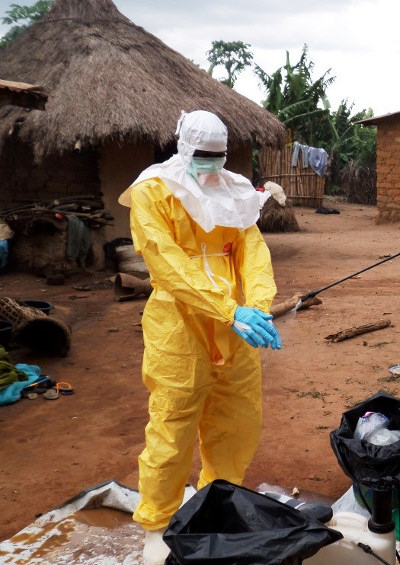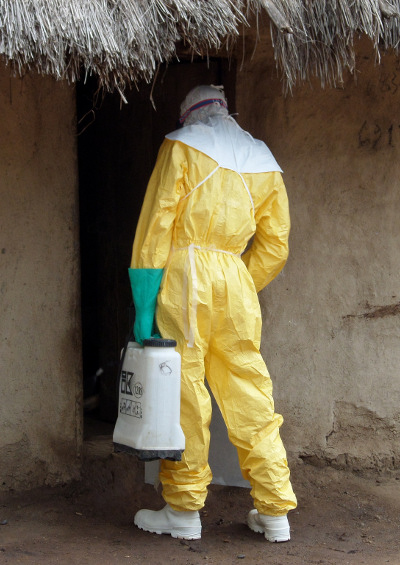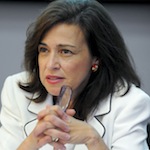Ebola: An Opportunity for Public Diplomacy
The Ebola virus is proof that foreign policy is not “foreign.”
August 4, 2014

The arrival of two Americans on two separate planes in isolation chambers, met by Atlanta doctors in suits and gloves, has caused fear in the United States about the spread of an Ebola virus. Citizens everywhere are watching this unfolding drama as we would a science fiction movie, only this is real and immediate.
According to the World Health Organization, the virus has infected more than 1,300 people. Near 900 have died, mainly in Guinea, Liberia and Sierra Leone. That is far less than other contagious diseases, but with no vaccine as yet and no cure, those numbers could rise very quickly. In an age of modern transportation, we are all potential carriers or victims.
Rather than view the Ebola outbreak as a reason to worry, let’s see it as a public diplomacy challenge and opportunity.
Challenge and opportunity
First, foreign policy is not “foreign,” but something that must concern every citizen. This is proof that when it comes to international issues, we are all in it together.
Whether you are an unsuspecting traveler, a young person studying abroad, a Peace Corps volunteer or an African farmer, health issues can affect everything from your life to how you make your living.
Rural areas around the world are often where food is grown and where disease is hardest to contain. A virus may start in a faraway village with little medical care — and then make its way into increasingly crowded cities and onto airline carriers.
If we can make the argument that preventing deadly disease is in the interests of all, we have taken a big step on the road to public education about international spending.
Second, we need to understand that building a network of health care professionals around the world and building up public health ministries in places like West Africa would enable those and other countries to manage epidemics on the front lines.
That would prevent sending Doctors Without Borders or other relief workers into nearly impossible situations – into pandemics where there is no health care infrastructure. Foreign assistance is a hard case to make in a post 2008 global recession, but the reality of Ebola makes the case.
Using the momentum
Third, public diplomacy means local community education in underdeveloped countries where disease is a stigma and reporting on issues like Ebola is poor. Ebola is now a front-page story and a social media phenomenon.
Let us use that momentum to demand support to create effective village- and community-based education in Africa, Latin America and other places where diseases go unreported.
The Centers for Disease Control is dispatching 50 additional infectious disease experts to West Africa. That is a drop in the bucket. If we could rally all nations to bring together expertise in a global response, we might beat this virus back.
International health issues have the potential to engulf citizens in a web of disease-specific thinking. On the positive side, if we approach Ebola through a global public health campaign, we can rally resources and education to get ahead of it.
The United States has just brought home two of its stricken citizens. Let’s use our public health prevention skills to avoid more such homecomings.
Takeaways
Ebola shows that foreign policy is not “foreign.” When it comes to international issues, we are all in it together.
Spending money on foreign assistance is a hard case to make, recession or not -- but Ebola makes the case.
The Ebola outbreak is not just a reason to worry. It’s a reason to push countries to help one another face epidemics.
Read previous

What Should Scare Us Most About Ebola?
August 4, 2014
